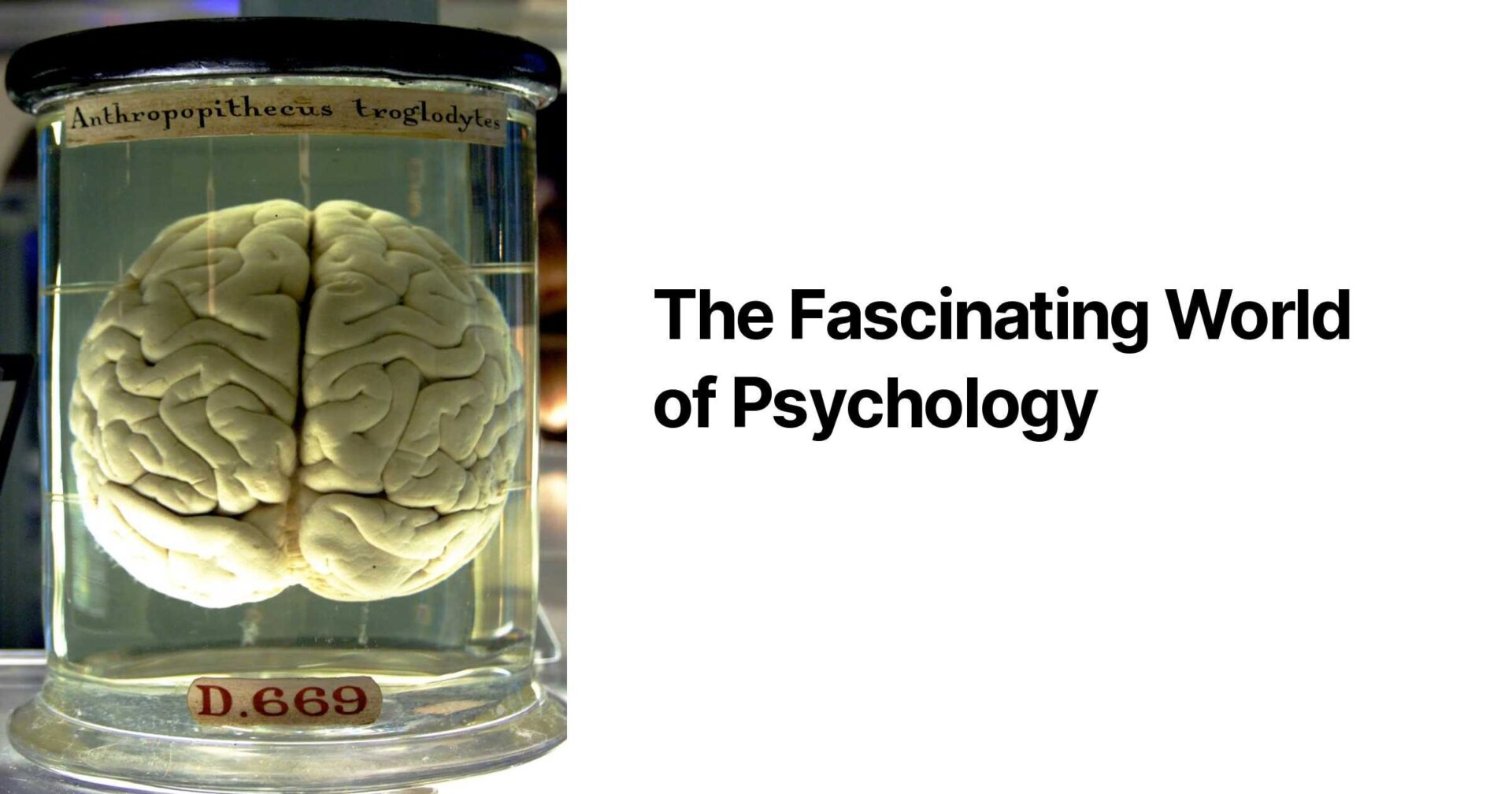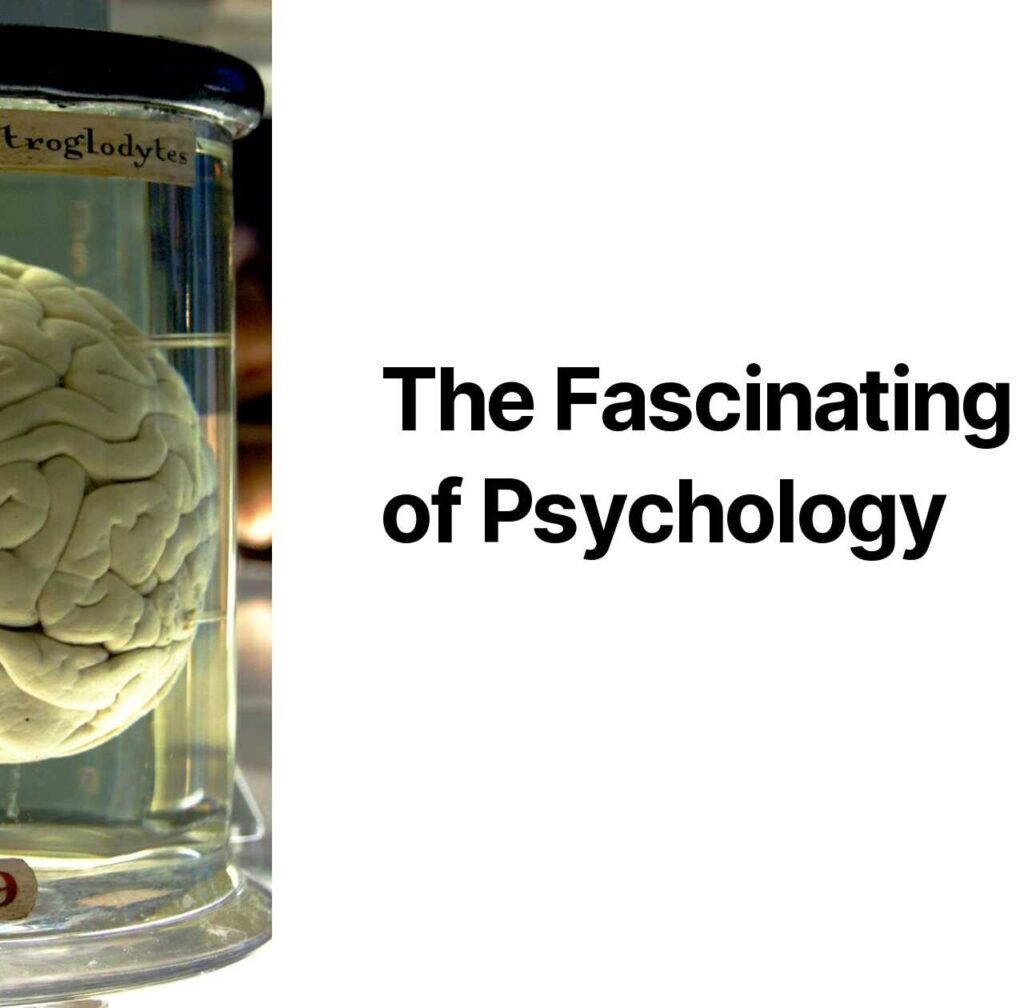
Psychology, the science of the mind and behavior, delves into the fascinating depths of human experience. But beyond textbook definitions and classroom lectures lies a realm of bizarre, counterintuitive facts that will make you question everything you thought you knew about yourself and others. So, buckle up and prepare to have your mind blown as we explore the strange and surprising world of psychology!
The Power of Perception: How Your Brain Plays Tricks on You
Our brains are wired to make sense of the world around us, but sometimes, this process leads to some pretty strange perceptual illusions.
- Optical Illusions: Ever seen those mind-bending images where parallel lines appear to be slanted, or a single object morphs into something else? These are optical illusions, where our brains misinterpret visual information, creating a distorted perception of reality.
- Confirmation Bias: We all have a tendency to favor information that confirms our existing beliefs and downplay anything that contradicts them. This confirmation bias can lead us to misinterpret situations and make biased judgments. Think of it as a mental filter that only allows information that fits our pre-existing worldview to pass through.
- The Placebo Effect: Ever taken a sugar pill (a placebo) that miraculously cured your headache? The placebo effect is a powerful phenomenon where the belief in a treatment, even if it’s inactive, can actually produce a positive outcome. This highlights the mind’s impressive influence on our physical well-being.
The Power of Suggestion: How Words Can Shape Your Reality
Words have immense power, and psychologists have delved into the fascinating ways they can influence our thoughts and behaviors.
- Priming: Expose someone to a certain word or concept, and they’re more likely to notice related things in their environment. Imagine reading about cookies right before entering a grocery store; you’re much more likely to be drawn to the bakery section. This is the power of priming, where subtle cues can influence our subconscious thoughts and behaviors.
- The Pygmalion Effect: Imagine a teacher who believes a student is destined for greatness. Their positive expectations can create a self-fulfilling prophecy, boosting the student’s confidence and leading them to achieve greater things. This “Pygmalion Effect” highlights the power of expectations in shaping outcomes.
The Paradox of Choice: When Less Can Be More

Ever felt overwhelmed by too many options? Psychologists have explored the paradox of choice, where an abundance of choices can actually lead to decision paralysis and dissatisfaction.
The Analysis Paralysis Trap
Imagine standing in a grocery store aisle with a hundred different cereal brands. The sheer number of options can make it difficult to choose, leading to analysis paralysis and ultimately, an unhealthy default choice (like the sugary cereal at eye level).
The Seduction of Scarcity
Have you ever been tempted to buy something simply because it’s “limited edition” or “selling out fast”? The scarcity principle exploits our fear of missing out, making us value something more if it’s perceived as limited or disappearing soon.
The Mind’s Hidden Biases: Unconscious Influences on Our Behavior
We all have unconscious biases, ingrained prejudices that affect how we perceive and interact with the world.
- Implicit Bias: These are unconscious biases that influence our thoughts and behaviors without our awareness. For example, we might unknowingly favor someone from our own social group or hold unconscious stereotypes about certain professions. Understanding and acknowledging these biases are crucial for making fairer judgments.
- The In-Group/Out-Group Mentality: Humans have a natural tendency to favor our own group (in-group) and view outsiders (out-group) with suspicion. This can lead to prejudice and discrimination, but understanding this ingrained tendency can help us promote inclusivity and bridge divides.
The Dream World: Unraveling the Mystery of Sleep
Sleep, that seemingly passive state, is actually a complex phenomenon with some strange and fascinating psychological aspects.
- Lucid Dreaming: Have you ever dreamed and been aware you’re dreaming? These are lucid dreams, where you have some control over the dream content. While the science behind lucid dreaming is still being explored, it offers a fascinating window into the workings of the subconscious mind.
- Sleep Paralysis: Ever woken up feeling paralyzed, unable to move or speak? This is sleep paralysis, a terrifying experience caused by a temporary disconnect between your brain and body as you wake from REM sleep. While scary, it’s usually harmless.
The Power of Naps

Don’t underestimate the power of naps! Short daytime naps can significantly boost alertness, cognitive function, and creativity. So, next time you feel that afternoon slump coming on, consider a power nap to recharge your mental batteries.
The Social Animal Within: How We Connect and Behave in Groups
Humans are social creatures, and our behavior is heavily influenced by the groups we belong to.
- Social Proof: Imagine walking down a crowded street and seeing everyone looking up at the sky. Curiosity might compel you to look up too! This is social proof, where we rely on the actions of others to guide our own behavior.
- The Bystander Effect: Ever witnessed a situation where no one helped someone in need? This is the bystander effect, where the presence of others can sometimes lead to a diffusion of responsibility. Understanding this phenomenon is crucial for promoting intervention and helping those in need.
- Groupthink: Have you ever been part of a group where everyone seemed to agree, even if they harbored doubts? This is groupthink, where the desire for group cohesion can lead to poor decision-making. It’s important to encourage critical thinking and dissenting voices within groups.
The Power of Memory: Remembering and Forgetting
Memory, the cornerstone of our identity and experience, can be a surprisingly unreliable narrator.
- False Memories: Have you ever been convinced of a memory that never actually happened? False memories can be implanted through suggestion or created by our brains to fill in gaps in our personal narratives. Understanding the fallibility of memory is crucial for critical thinking and avoiding misinformation.
- The Forgetting Curve: Ever crammed for an exam only to forget everything the next day? This is due to the forgetting curve, where memories fade over time without reinforcement. Active learning techniques and spaced repetition can help combat this and improve your ability to retain information.
The Power of Nostalgia
Feeling sentimental about the “good old days”? Nostalgia, a longing for the past, can have a powerful effect on our mood and behavior. While it can be comforting, nostalgia can also prevent us from embracing the present and future possibilities.
Conclusion
The human mind is a complex and fascinating labyrinth, brimming with strange and surprising quirks. Understanding these psychological phenomena can help us navigate our inner world, improve our interactions with others, and make sense of the complex human experience. So, the next time you catch yourself exhibiting a strange behavior or experiencing an odd mental glitch, remember, it’s just another quirk of the amazing mind at work!
You May Also Like….
- Taming the Tiger: Natural Ways to Lower Your Cholesterol
- The Health Benefits of Beans: A Nutrient-Packed Powerhouse
- Read the Health Benefit of Watermelon
Frequently Asked Questions
Q1: Can I control my subconscious mind?
While you may not have direct control over your subconscious, there are ways to influence it. Techniques like meditation, hypnosis, and positive affirmations can help shape your subconscious thoughts and behaviors.
Q2: How can I improve my decision-making skills?
One way to improve your decision-making is to be aware of your biases. Take time to gather information, consider different perspectives, and avoid making decisions under pressure.
Q3: Are there ways to improve my memory?
Absolutely! Actively engaging with information, using mnemonic devices, and spaced repetition techniques can all enhance your memory. Getting enough sleep and managing stress also play a crucial role in memory consolidation.
Q4: Is it normal to have strange dreams?
Yes! Dreams are a normal part of the sleep process, and they can be bizarre, symbolic, or even frightening. While the exact meaning of dreams is debated, keeping a dream journal and reflecting on recurring themes can offer some insights into your subconscious mind.
Q5: How can I learn more about psychology?
There are many resources available to deepen your understanding of psychology! Read popular psychology books, take online courses, or even watch documentaries that explore human behavior. Psychology is a fascinating field with something to offer everyone.


